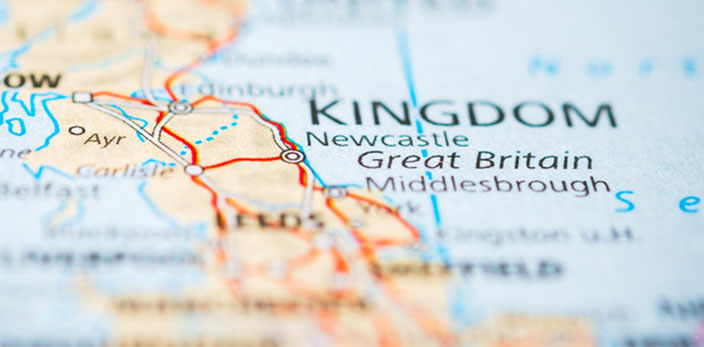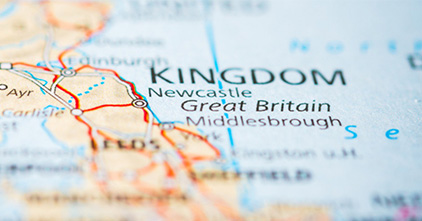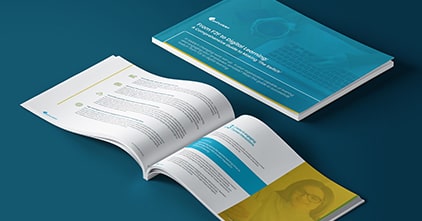English may not be the most spoken language in the world, but it’s certainly the most influential!
English has long ridden on the crest of globalization and technology, dominating the world no other language ever has. Some linguists even say that it may never be dethroned as the king of languages. It’s not just widely spoken by roughly 1.5 Billion people, but it’s also the international language of many industries. How, exactly?

From Englisc to English
After the fall of the Roman Empire in the 5th century AD, three Germanic tribes invaded Britain. This changed the language the natives once spoke from Celtic to “Englisc,” otherwise known as English. Their language then, now known as “Old English,“ was soon adopted as the common language of this relatively remote corner of Europe.
Surprisingly, about half of the most commonly used words in Modern English still have Old English roots. Take this sentence as an example: Eft he axode, hu ðære ðeode nama wære þe hi of comon.
A few of these words are recognized as identical in spelling to their modern equivalents (he, and of). The resemblance of a few others to familiar words may be guessed (nama to name, comon to come, wære to were). But only those who have made a special study of Old English will be able to understand this completely. This passage says Again, he asked what might be the name of the people from which they came. Interesting, right?
The Influence of French and Latin
The Vikings later invaded Britain, creating a cultural shift yet again. Old English got mixed up with Old Norse and Latin. This gave English more than 2,000 new words.
Thereafter, the Norman Invasion led by William the Conqueror in 1066 made a substantial impact on English. It broke down the ways of the Old English system as the French brought their heritage and language with them.
French became the language of power and royalty at that time, but English still continued to develop and grow by adopting a lot of sophisticated Latin and French concepts and words. No wonder 45% of English vocabulary is derived from French! Some loanwords include cafe, garage, deja vu, and entrepreneur.
It’s safe to say that William the Conqueror changed the course of English history forever.

Lots of Changes and Developments
The amount of history between the UK and France has surely set the scene for many developments in the English language. There are many points in history where the two nations worked together, but they also didn’t see eye-to-eye on many occasions either. From the Hundred Years War in 1337 to Napoleon’s Revolution and Exile in 1815, they’ve both had their fair share of victories and losses.
In between those wars though, English rose to become the language of power and influence once again. The language continued to progress starting 1589 with William Shakespeare’s famous plays and novels, introducing (or better yet, creating) more than 2,000 English words! All these new words created new vowels that needed to be pronounced in a whole new way.
The word “house” is now pronounced as howss instead of the Middle English hooss. This shift in the English language is known to be the Great Vowel Shift.
Britain gains power, and so does English
The Gutenberg press invented in 1440 made English become even more widespread as it was published in print and distributed for the whole world to learn and read. This allowed English literature and culture to flourish significantly!
Even after Shakespeare’s time, conquests and invasions were commonplace because of power struggles and the acquisition of resources and economic profits. Mighty nations such as Britain continued to take over a lot of countries, establishing the British Empire.
At its height, it was the largest empire in history and for over a century was the foremost global power. With British colonization, the colonized had to learn English, leaving new varieties of the language to develop all over the world. Canadian, Australian, New Zealand, South African, and Indian, are common variations among others.

Around the 1600s, the English colonization of North America resulted in the creation of a distinct American variety of English. And this dialect became the most influential to the extent that it now influences the vocabulary of British English. Because of America’s dominance over cinema, television, popular music, trade, and technology (including the Internet) throughout the years, made English even more universal!
Today, English has become the leading language in business, science, literature, politics, diplomacy, and many more areas and industries. It is also considered the world’s lingua franca as over 55 countries speak it as a second language.
The English Language Today
Certainly, English has really become a ‘global’ language after its evolution over the years. And the story of English is quite fascinating and complex, don’t you think? From its start in a jumble of West Germanic dialects to its role today as a global language, English has certainly risen to become the most influential language in the modern world.
Mark Warschauer, a professor at the University of California, Irvine, remarks that “English has become the second language of everybody. It has gotten to the point wherein almost any part of the world, to be educated means to know English.”
And rightly so. From grade school classrooms to global companies, English has become the lingua franca across many countries, peoples, and cultures. That’s why it’s even more essential to equip oneself with the right English skills in order to build confidence for global competence.




